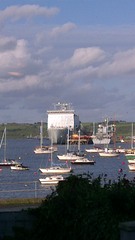 Secured creditors stand first in line for payment, but what happens if a debtor’s assets have been frozen by a court order? The High Court has tackled that issue – on which there was surprisingly no previous legal authority – in an important ruling.
Secured creditors stand first in line for payment, but what happens if a debtor’s assets have been frozen by a court order? The High Court has tackled that issue – on which there was surprisingly no previous legal authority – in an important ruling.
A creditor was owed $2.9 million by a shipping company in respect of a bridging loan and had secured an order freezing its assets worldwide. A lender had extended finance to the same company of up to $7.5 million under a facility agreement and its loan was secured by a debenture against the company’s assets.
In those circumstances, the lender sought an amendment to the freezing order to the effect that nothing contained within it would stand in the way of it enforcing its rights under the facility agreement and the debenture. In particular, the lender wished to take possession of the company’s intellectual property rights, for which it had found a willing buyer. The amendment was resisted by the creditor that had obtained the freezing order.
In ruling on the issue, the Court noted the absence of legal authority on the point. Observing that the freezing order did not operate so as to affect the genuine rights of third parties over the company’s assets, the Court expressed the view that the disposal of its intellectual property rights by the lender would not be prohibited by the order and that the amendment was thus probably unnecessary.
If it were correct that, in every freezing order case, a secured creditor would have to apply for a variation, the result would be unnecessary litigation and cost. In granting the amendment, however, the Court was sympathetic to the lender’s wish for clarity. As a secured creditor, and in the absence of any evidence of collusion or sham, it was entitled to the relief sought.

